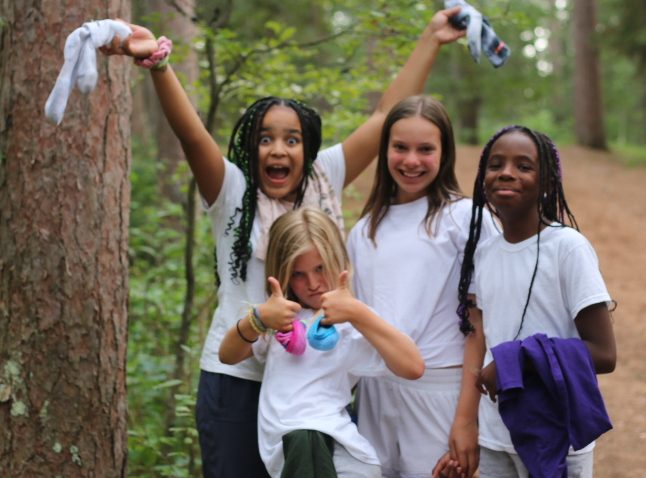Making new friends can sometimes feel like a daunting task, especially when you’re young and the world seems so vast and complex. But here’s a secret: everyone, even the most outgoing person you know, feels the same way. So, how can a young girl make new friends? Fear not, because we’ve got you covered!
Key Takeaways
- Joining clubs, teams, or volunteering helps in finding like-minded peers, which can lead to making new friends through shared interests and activities.
- Developing social skills such as mastering small talk, being a good listener, and overcoming shyness are crucial for building friendships and engaging more confidently in social situations.
- Building friendships requires stepping out of your comfort zone, trying new things, and creating opportunities for interaction; while being a good friend involves kindness, reliability, and empathy towards others.
Discovering Shared Interests: The Key to New Friendships
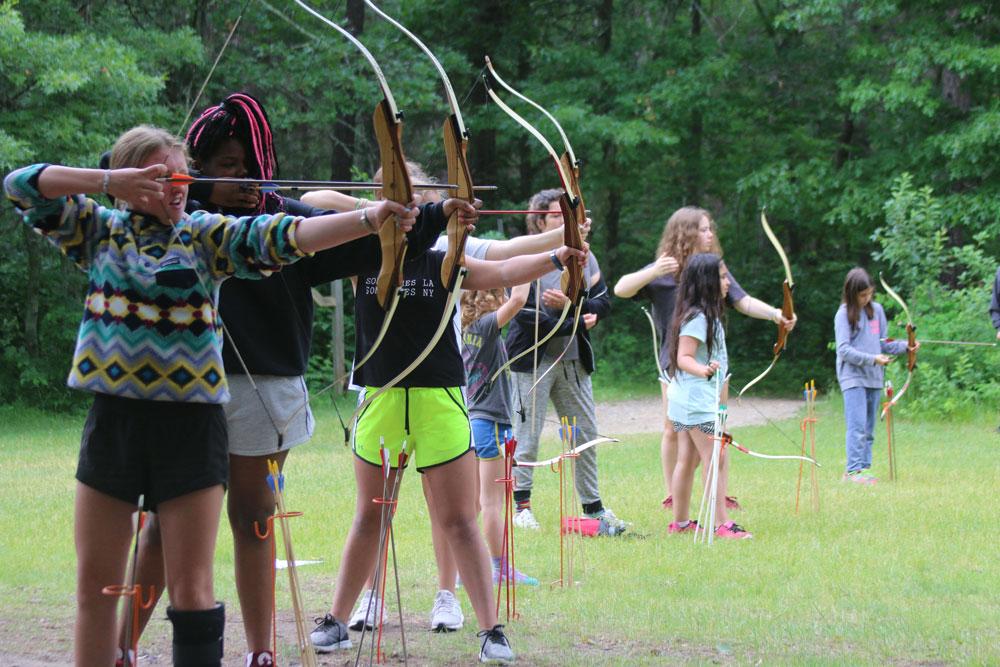
A group of multi-aged girls on the archery field
One of the best ways to make friends is by discovering similar interests. Think about it – don’t you feel more comfortable and at ease when talking about something you love? And doesn’t it feel great when you find someone who loves the same thing? That’s what shared interests are all about. They serve as the foundation for successful peer relationships and pave the way for deeper connections.
Join a Club That Sparks Your Interest
Joining a club that aligns with your interests can be a game-changer. It’s like a shortcut to finding your tribe – people who share the same passions as you do. Plus, it’s a great place to build friendships as you’ll be spending time together, working towards a shared goal. Some benefits of joining a club include:
- Finding like-minded individuals
- Building friendships
- Working towards a shared goal
- Learning new skills
- Networking opportunities
So why not consider joining a club today and start reaping the benefits?
Participate in Sports Teams or Youth Groups
If clubs aren’t your thing, joining a sports team or participating in youth groups might be a better fit for young people. These activities provide a built-in structure for socializing and forming friendships with other kids and other teens, which can help form successful peer relationships. They also encourage teamwork and camaraderie, which are key components of successful peer relationships.
Engage in Community Service or Volunteering
Another way to connect with others is through community service or volunteering. Not only does it allow you to give back, but it also puts you in an environment with people who share the same values. These shared experiences can foster meaningful connections and friendships.
The Art of Conversation: Building Social Skills
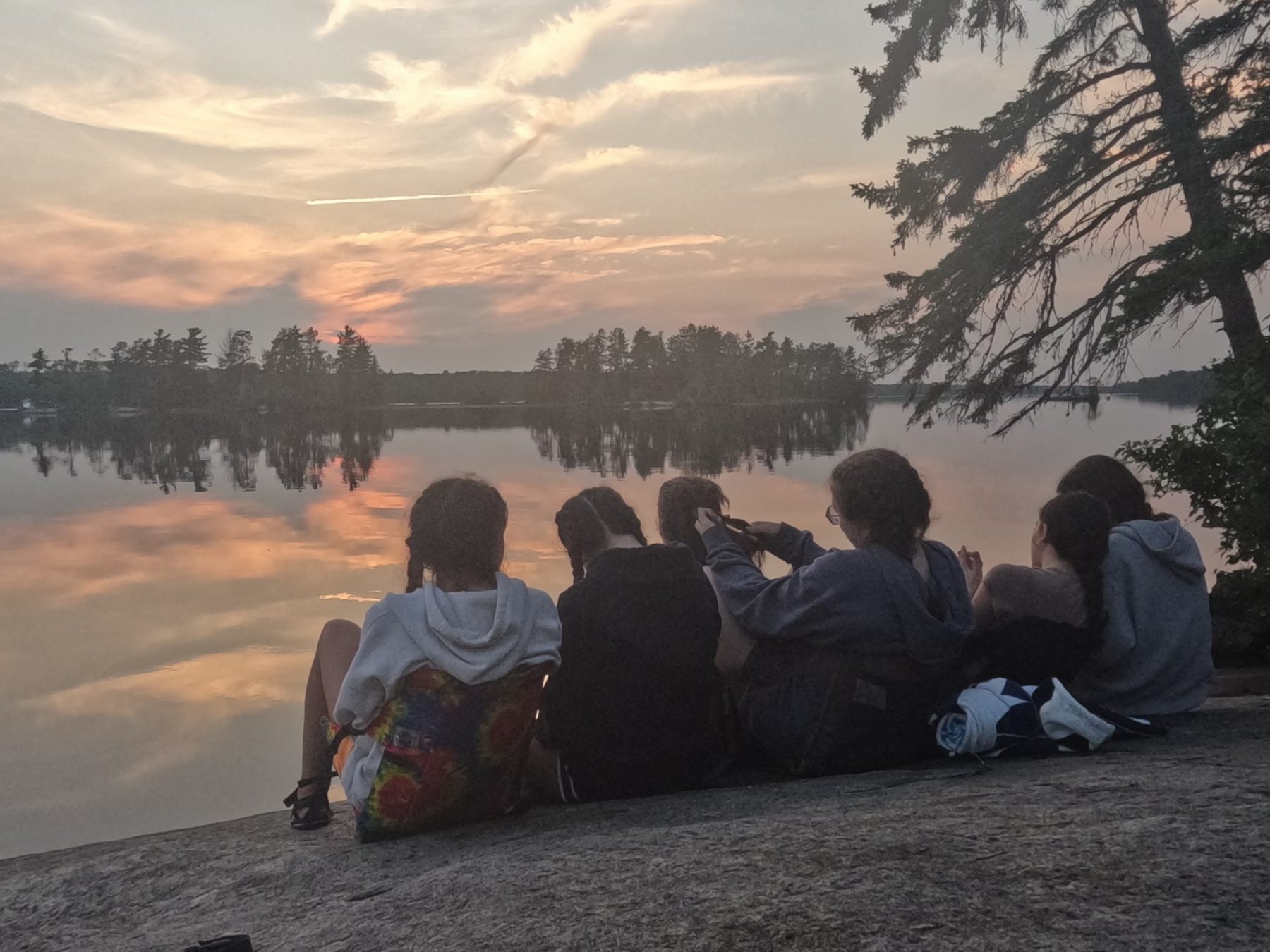
Now, we’ve all heard that communication is key, right? But when it comes to making friends, it’s not just about talking. It’s about how you talk, how you listen, and how you engage with others. That’s where social skills come into play.
Mastering Small Talk
Small talk may seem trivial, but it’s a critical skill in making new friends. It’s the initial step in any conversation and can set the tone for the entire interaction. So, don’t shy away from chit-chat about the weather or the latest TV show.
It could lead to a deeper and more meaningful conversation.
Becoming a Good Listener
Another essential aspect of building social skills is becoming a good listener. It’s not just about hearing what the other person is saying, but genuinely understanding and responding to it. And guess what? People love being heard. So, by being a good listener, you’re already halfway to being a great friend.
Overcoming Shyness
For our introverted friends out there, we know, socializing can be a bit overwhelming. But overcoming social anxiety is a journey, not a destination. It’s about taking small steps, like practicing conversations or joining social skills groups, to gradually improve your confidence in social situations.
Stepping Out of the Comfort Zone: Trying New Things
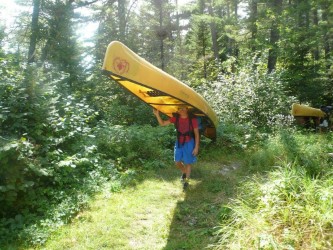
A teenager trying out a new hobby
Sometimes, making friends means stepping out of your comfort zone. It’s about trying new things, meeting new people, and opening yourself up to new experiences. It may seem scary at first, but remember, every friend was once a stranger.
And who knows? The next stranger you meet could become your best friend.
Taking Up a New Hobby
Taking up a new hobby is a great way to step out of your comfort zone. Whether it’s learning a new instrument, starting a book club, or getting into photography, hobbies offer a fun and relaxed environment to meet new people and potentially make new friends.
Attending Different Social Events
Attending social events is another excellent way to meet new people. From school fairs to community festivals, these events are filled with potential friends. So, don’t be shy to attend these events and strike up a conversation with someone new.
Creating Opportunities for Friendship
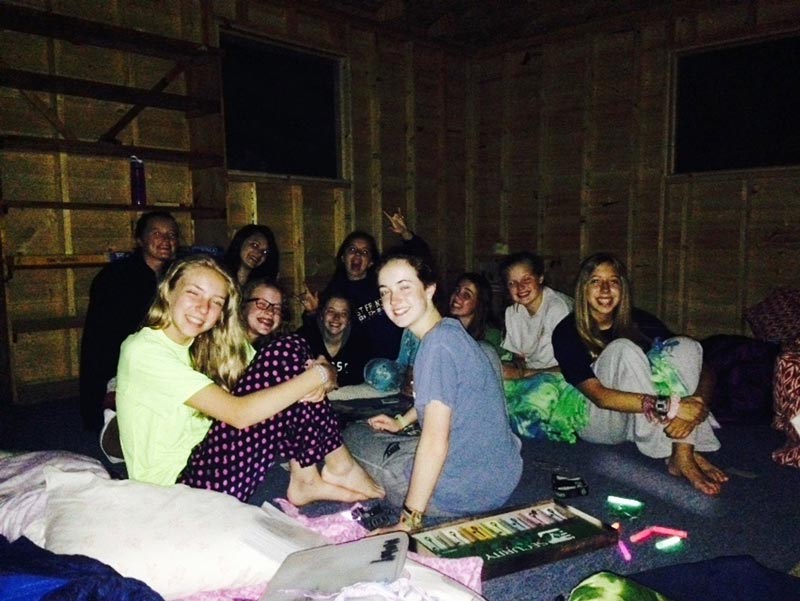
A group of friends playing games at a sleepover
Friendships don’t just happen. They require effort, time, and most importantly, initiative. This means creating opportunities for friendships to form and flourish.
Whether it’s organizing a group activity or following up after the first meeting, every action counts.
Organizing Group Activities
Organizing group activities can be a fun and effective way to make new friends and even form a friend group. Whether it’s a study group, a book club, or a hiking trip, group activities provide a relaxed environment for people to connect and interact. Plus, it’s a perfect opportunity to bond over shared experiences and interests.
Following Up After First Meetings
Remember that making friends doesn’t stop at the first meeting. Following up is key to building and maintaining relationships. It shows that you’re interested in the person and the friendship. So, don’t hesitate to drop a message or make a call after your initial meeting.
It could be the start of a beautiful friendship, one that leads to good friends bonding over the same music.
Hosting Friendly Gatherings
Hosting gatherings is another great way to create opportunities for friendship. It’s a chance to bring people together and create a welcoming environment for everyone.
Plus, it provides a platform for your friends to meet each other and potentially form new friendships.
Positive Personality Traits: Being a Friend Worth Having
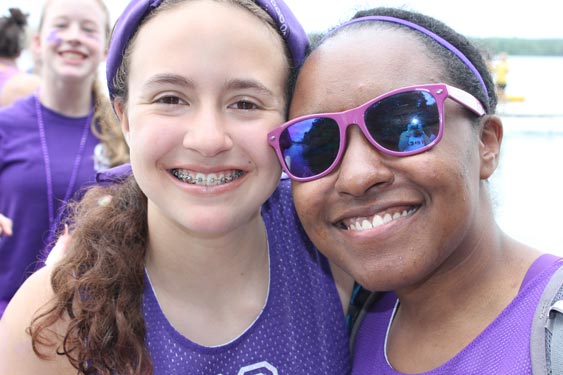
Teens showing kindness and generosity
Being a good friend is just as important as making one. Friendship requires mutual effort and communication from both parties involved. It is a give and take relationship where both individuals contribute to the bond. This means practicing positive personality traits such as kindness, reliability, and empathy.
These traits not only make you a friend worth having but also attract positive friendships.
Showing Kindness and Generosity
Showing kindness and generosity can go a long way in maintaining friendships. Simple acts of kindness like offering help when needed or giving a compliment can make a big difference in someone’s day. Plus, it helps build a positive and supportive friendship.
Practicing Reliability and Trustworthiness
Being reliable and trustworthy is crucial in any relationship, especially in friendships. It’s about keeping promises and being there for your friends when they need you. This not only strengthens your friendship but also builds trust and respect.
Displaying Empathy and Understanding
Displaying empathy and understanding is another important trait in a good friend. It’s about putting yourself in your friend’s shoes and understanding their feelings.
This level of understanding can deepen your connection and make your friendship stronger.
Navigating School Dynamics: Making Friends in the Classroom
School is where most of us spend a significant part of our day, making it a prime place for making friends. It’s about navigating the dynamics of the classroom and finding opportunities for friendships to form and grow. A school counselor can be a helpful resource in this process.
Collaborating on School Projects
Collaborating on school projects is a perfect opportunity to bond with your classmates. It’s a chance to work together, share ideas, and achieve a common goal. This shared experience can lead to stronger friendships and better understanding of each other’s strengths and weaknesses.
Forming or Joining Study Groups
Forming or joining study groups is another way to make friends in school. It’s a platform for academic discussions and learning, but it’s also a place for social interaction and bonding. Plus, being in a study group means you’re spending a significant amount of time together, which can deepen your friendship.
Connecting During Lunchtime and Breaks
Lunchtime and breaks are often overlooked opportunities for making friends. These are the times when everyone is relaxed and open for casual chats.
So, next time you’re on lunch break, try starting a conversation with someone new. You might just make a new friend.
Building Confidence and Self-Esteem
Confidence and self-esteem play a crucial role in making friends. When you’re confident, you’re more likely to be outgoing and willing to step out of your comfort zone, which opens you up to more opportunities for friendship.
Celebrating Personal Achievements
Celebrating personal achievements is a great way to boost your self-esteem. It’s a reminder of your capabilities and achievements, which can instill confidence in your abilities.
So, don’t forget to celebrate your successes, no matter how small they may seem and definitely do not forget to celebrate the successes of your friends!
Positive Affirmations and Self-Care
Practicing positive affirmations and self-care are also important in building self-esteem. Positive affirmations can help create a positive self-image, while self-care ensures that you’re taking care of your mental and physical health, which is essential in maintaining confidence and self-esteem.
Seeking Support When Needed
Lastly, don’t be afraid to seek support when needed. Whether it’s from friends, family members, or professionals, asking for help is not a sign of weakness. In fact, it’s a sign of strength and maturity.
Remember, you’re not alone in this journey. There are people who care about you and are willing to help.
Digital Connections: Making Friends in the Digital Age
In today’s digital age, making friends has gone beyond the confines of our physical world. It’s about connecting with others through video games, social media, and online communities. While it may seem intimidating at first, these platforms can provide a host of opportunities to meet new people and build friendships.
Playing Video Games with Others
Playing video games with others can be a fun and engaging way to make friends. Here are some reasons why:
- Collaborative gameplay and shared experiences can help you bond with other players.
- It’s a great way to bond over shared interests.
- Friendly competition can add excitement and create a sense of camaraderie.
Navigating Social Media Wisely
Social media is another platform for making friends. It’s a place where you can join online clubs, share your interests, and connect with others. However, it’s important to navigate social media wisely. Remember to respect everyone’s privacy and boundaries, and always be considerate of others’ feelings.
Summary
In summary, making friends is a journey that involves discovering shared interests, building social skills, stepping out of your comfort zone, creating opportunities for friendship, cultivating positive personality traits, navigating school dynamics, building confidence and self-esteem, and making digital connections. Remember, every friend was once a stranger, and each new person you meet is a potential friend. So, embrace the journey, be patient, and most importantly, be yourself.
13 reasons why families love camp kamaji
Frequently Asked Questions
How do you help a child who has no friends?
Help your child make friends by being supportive, boosting their confidence, encouraging school participation, teaching them to control negative emotions, promoting empathy, ruling out anxiety, and signing them up for activities they are interested in. These are great ways to help your child build social connections and feel more included.
How do you make friends at a young age?
To make friends at a young age, kids need to learn how to introduce themselves, listen well, and provide conversational feedback. They can also connect with others by joining clubs, sports teams, attending sleepaway summer camp, or creating study groups. This helps them meet new people and build lasting friendships.
How can a 13 year old girl make friends?
Try joining after-school clubs or activities that interest you, like band, theater, art, robotics, or sports, to meet like-minded peers and make friends. You can also try sitting with a group of people at lunch, speaking up in class, or inviting a classmate over after school to build connections and make new friends, regardless of the social media strategy.
How do I start a conversation with someone new?
To start a conversation with someone new, engage in small talk by discussing shared interests, asking open-ended questions, and showing genuine interest in their responses. This could be as simple as asking about their day or commenting on something you both observe.
What can I do to overcome my shyness in social situations?
To overcome shyness in social situations, start by taking small steps such as joining social skills groups and gradually pushing yourself into new social situations. Practice conversations to build confidence.

